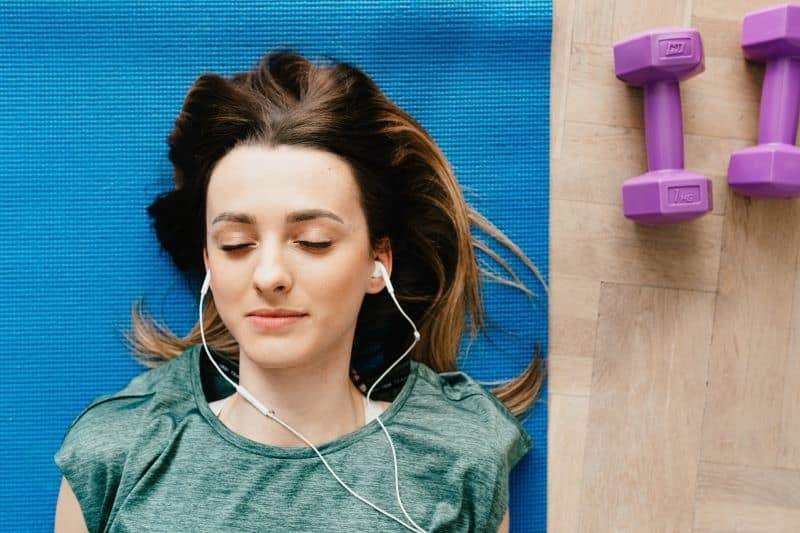Everyone experiences anxiety at some point in life. However, when this feeling becomes so strong that it affects how you function, it becomes a disorder. According to statistics, anxiety disorder is the most common mental health condition affecting over 40 million Americans. If you suffer from anxiety, you may find it hard to fall asleep, leading to sleep deprivation. This may worsen your anxiety and end up creating a vicious cycle.
Fortunately, you can enjoy better sleep by incorporating simple routines and making slight changes to your lifestyle. Below are a few tips to help you fall asleep much faster and attain quality sleep and rest.
1. Maintain a Sleep Schedule
Creating and maintaining a sleep schedule trains your mind and body to fall asleep and wake up at a given time. It also helps you achieve some sense of control thereby easing your anxiety. Come up with a sleep schedule where you go to sleep and wake up at the same time every day even on weekends. This way, you reprogram your circadian rhythm and make it easy to fall asleep at the given time.
Be careful with naps as they can disrupt your sleeping pattern. If you must take a nap, avoid napping late in the day and ensure that your nap time isn’t more than 1 hour. If you need to revise your sleep schedule, do so gradually to avoid throwing off your newly acquired sleeping routine.
2. Relax Your Mind

It is difficult to fall asleep when you are afraid, stressed, or have a lot on your mind. To fall asleep much faster, you need to be relaxed and have a clear head. Relaxation techniques such as meditation, breathing exercises, and even yoga can go a long way in calming your mind before you go to sleep. You can even go for a walk, read quietly, or listen to relaxing music as long as it helps you unwind from the day’s hustle and bustle.
While your gadgets may be the source of your relaxation, ensure that you keep your screen time at a minimum. This is because the blue light that your TV, computer, or tablet emits keeps your brain active which makes it difficult for you to fall asleep.
3. Create a Conducive Environment for Sleeping
An excellent way to fall asleep is by creating a favorable environment for sleeping. You can do this by ensuring that your bedroom is quiet, cool, and comfortable. Get rid of any noise that may disrupt your sleep and maintain the right temperature for sleeping that is neither too hot nor too cold. If you can’t eliminate the noise, drown it with the help of a fan, a white noise machine, or use earplugs.
Keep the lights out with the help of black-out curtains or a sleep mask so that it is completely dark. This way, your brain gets the message that it is your time to rest. Lastly, make sure that your mattress and beddings are comfortable. If you have an old mattress, or you feel tired or sore when you wake up, you may need to get a new high-quality mattress to help you relax and fall asleep easily.
4. Exercise

Exercising helps you stay fit and healthy, as well as beat insomnia especially if you suffer from anxiety. When you work out, you use energy which makes you tired and eager to rest at the end of the day. It also improves your mood and alleviates anxiety by lowering the levels of the cortisol-a hormone responsible for stress. This allows you to relax and fall asleep much faster and for longer.
According to the Nationals Sleep Foundation, moderate aerobic exercises are particularly effective at beating insomnia compared to vigorous physical activity. For better results, work out during the early hours of the day as evening exercises will keep you alert. Morning workouts are also necessary to reset your waking and sleeping cycle.
5. Watch What You Eat
What you eat before bed can help or break your efforts of falling asleep. Avoid taking alcohol before bed because although it may make you drowsy, it ends up interfering with the quality of sleep you get. What’s more, it is detrimental to your overall health and may not only worsen anxiety but also increase your heartbeat.
You should also stay away from caffeine in the afternoon and evening as it will keep you alert and prevent you from sleeping. Remember, caffeine takes about 8 hours to wear off from the body. To promote sleep, consider taking light evening meals so that you don’t task your digestive system. Also, opt for dairy products and carbs before bedtime while cutting down on spicy and high-fat food.
Conclusion
Insomnia and sleeping problems are both the symptoms and effects of anxiety disorders. With the above tips, you can break the vicious cycle and attain restful sleep. In case you experience severe sleeping problems, you should seek professional advice from a doctor.
Read Also:












